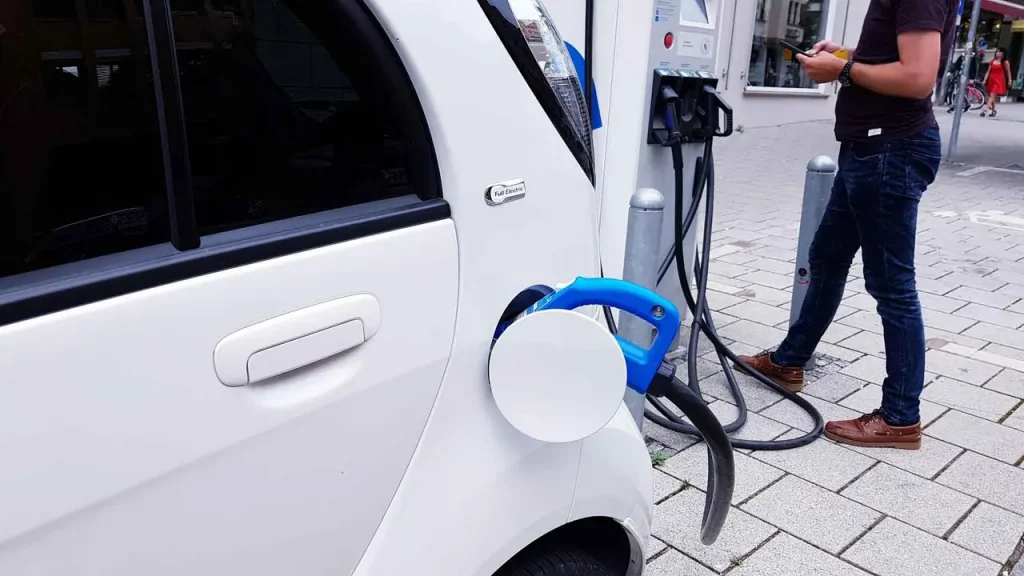
Used electric cars for businesses benefits Explained
Let’s be honest for a moment. The idea of switching your entire business fleet to electric vehicles probably sounds expensive, complicated, and maybe a little bit like a headache you don’t need. I get it. The upfront cost of a brand-new EV can make your eyes water. But what if there was a back door? A smarter, more cost-effective way to electrify your fleet that savvy business owners are quietly adopting? There is. And it revolves around a simple, powerful concept: used electric cars. The conversation is shifting, and it’s all about the massive, and I mean massive, benefits for businesses using used electric cars that are becoming impossible to ignore. This isn’t just about saving the planet; it’s about saving your bottom line.
The Smart Move: Why Businesses Are Turning to Used Electric Cars
The switch is happening. All around us, commercial vans are becoming quieter, and company cars are gliding silently through city streets. This isn’t some fleeting trend. It’s a calculated business decision. The initial EV boom meant a wave of new, expensive models hit the market, but now, those same cars are coming off lease and entering the second-hand market in droves. This creates a golden opportunity. Businesses are realizing that the full spectrum of these advantages encompasses everything from financial gains to marketing wins. We’re past the point of early adoption risks; this is now a proven, strategic move for companies looking to get ahead. Understanding what are the benefits of used EVs for companies is the first step towards future-proofing your operations and outsmarting the competition.
Unlocking Financial Advantages: Significant Savings with Pre-Owned EVs
Money talks. And when it comes to used EVs, it’s screaming about savings. The financial case is so compelling that it often becomes the primary driver for making the switch, long before the environmental perks are even considered. It’s a multi-faceted financial win that impacts your budget from day one and continues for years.
Initial Investment: A More Accessible Entry Point
Here’s the biggest barrier, smashed to pieces. A new electric car takes its biggest depreciation hit in the first two to three years. Someone else already paid for that. By stepping in and buying a used model, you bypass that massive initial loss in value entirely.
Think about it: you get all the core technology and performance for a fraction of the original sticker price. Suddenly, building an electric fleet isn’t a distant dream; it’s an affordable, immediate possibility. This lower barrier to entry is one of the most significant benefits of used electric cars for businesses, especially for smaller companies where every penny counts. The accessibility completely changes the equation, making the transition far less daunting from a purely capital expenditure standpoint.
Operational Efficiency: Fueling Your Business for Less
Imagine slashing your company’s fuel bill by 70%, 80%, or even more. It sounds like a fantasy, right? It’s not. Electricity is substantially cheaper than petrol or diesel, and the prices are far more stable, meaning no more wincing at the wild swings of global oil prices. With EVs, you can calculate your ‘fuel’ costs with predictable accuracy, paying pennies per mile.
This is where the real, tangible, month-over-month cost savings for a used electric fleet become undeniable. We ran the numbers for a small delivery business, and the savings were staggering—they went from spending thousands a month on diesel to a few hundred on their electricity bill for overnight charging. It’s a direct boost to profitability and a cornerstone of the financial case for used EVs.
Maintenance Matters: Reducing Fleet Upkeep Costs
I once had a fleet manager tell me his biggest headache was unscheduled maintenance. A van out of commission is a van not making money, and EVs change that game entirely. An electric motor has a tiny fraction of the moving parts of an internal combustion engine.
What does that mean for you? No oil changes. Ever. No spark plugs, no filters, and no exhaust systems to fail. Even the brakes last significantly longer thanks to regenerative braking, where the motor does much of the work to slow the car down.
These reduced maintenance costs are a huge, often underestimated, financial benefit. It’s not just about the money saved on parts and labour; it’s about the increased uptime and reliability of your fleet. This reliability is a key part of the value proposition, ensuring your vehicles spend more time on the road doing their job.
Driving Sustainability: Boosting Your Business’s Green Credentials
Beyond the balance sheet, adopting a used electric fleet sends a powerful message. It shows your business is forward-thinking, responsible, and committed to more than just profit. And in today’s market, that matters. A lot.
Environmental Impact: A Step Towards a Greener Future
This is the obvious one, but it’s no less important. Zero tailpipe emissions. That means your fleet is no longer contributing to local air pollution in the communities you serve. For businesses operating in urban centres, this is a massive win. It improves air quality for everyone and directly reduces your company’s carbon footprint. The environmental advantages for a business using electric vehicles are clear and measurable. Yes, there’s a debate about the carbon cost of manufacturing the battery, but by buying used, you’re extending the life of a product that’s already been created, which is an environmental win in itself.
Corporate Social Responsibility: Enhancing Brand Image
Don’t underestimate the power of perception. When your branded van pulls up silently and cleanly, it reflects positively on your company. Customers, clients, and even potential employees notice these things. It demonstrates a commitment to modern values and corporate social responsibility. It can be a deciding factor for a consumer choosing between you and a competitor. This enhanced brand image is one of the most valuable, albeit less tangible, perks of switching to used EVs. It’s a marketing tool that works for you every single day on every single job.
Performance and Practicality: What to Expect from a Used Electric Fleet
Concerns about performance and practicality are common. Is the range good enough? Is the battery going to die? Are they reliable? These are valid questions, but the reality of modern used EVs is often much better than the myths suggest.
Range and Battery Life: Assessing Your Needs
Range anxiety. It’s a real fear, but let’s put it in a business context. How many of your fleet vehicles actually travel more than 100-150 miles in a single day? For most local delivery, service, and sales fleets, the answer is very few. Many 2-4 year old used EVs can comfortably deliver that kind of real-world range, so the key is to assess your actual daily needs, not some imagined worst-case scenario.
And what about battery health? Concerns about battery degradation are valid, but modern EV batteries are proving incredibly durable, often retaining over 90% of their original capacity after years of use. A reputable seller will provide a battery health report for complete transparency. This practical performance is one of the most reassuring aspects for new adopters and answers the question of how used electric cars can benefit small businesses with predictable daily routes.
Charging Infrastructure: Solutions for Business Operations
“Where will I charge them all?” This is often the first logistical hurdle people see. But it’s a problem with clear solutions. The most cost-effective and efficient method is depot charging. Installing Level 2 chargers at your business premises allows your entire fleet to recharge overnight, using cheaper off-peak electricity. They’re ready to go with a “full tank” every single morning. For vehicles that are out for longer, the public charging network is growing at an incredible pace. Planning routes that include rapid charging stops is becoming easier than ever. Finding the right charging solutions for business electric car fleets is a key part of the transition, but it is far from insurmountable. In fact, the convenience of starting every day with a full battery is another powerful advantage.
Reliability and Longevity: The Durability of Modern EVs
So, bottom line: are used electric cars reliable for business use? The answer is a resounding yes. In fact, they are often more reliable than their petrol or diesel counterparts precisely because they are mechanically simpler. Fewer things to go wrong means fewer breakdowns. The motors are incredibly robust, and the battery packs are engineered for the long haul, often coming with long-term warranties that are still valid on a used model. This inherent reliability isn’t just a convenience; it’s a financial asset. It maximizes your fleet’s operational time and minimizes frustrating, costly downtime. The sheer durability and reduced need for repairs are among the most compelling reasons to switch, directly impacting your daily operations and long-term financial health.
Navigating Incentives: Maximizing Business Benefits
The savings don’t stop with fuel and maintenance. To encourage the switch, various schemes and financial structures are in place that can make the proposition of a used EV fleet even more attractive.
Government Grants and Tax Credits: Aiding Your Transition
This is a big one. Many governments and local authorities offer incentives that can dramatically reduce the cost of acquiring and running electric vehicles. It’s crucial to research the current tax benefits for businesses buying used electric vehicles, as these can include reduced taxes or even upfront purchase grants. While some incentives are geared towards new vehicles, many apply to used ones as well, or there might be support for installing charging infrastructure. Look into the availability of used electric vehicle grants for businesses in your area. These programs are designed to make the transition easier and more financially viable, amplifying the already impressive financial benefits.
Depreciation and Asset Value: Strategic Financial Planning
As we mentioned, the first owner takes the biggest depreciation hit. This puts you, the second owner, in a powerful financial position. Your asset will hold its value far better from the point you purchase it. As demand for used EVs continues to grow, residual values are remaining surprisingly strong. This makes for smarter long-term financial planning. You’re not just buying a vehicle; you’re investing in an asset with a more stable value. This financial stability is a strategic advantage and a key factor when calculating the total ROI for a company’s used electric car fleet over its entire operational lifespan.
Making the Transition: Key Considerations for Business Owners
Making the switch requires a bit of planning, but it doesn’t have to be disruptive. A phased, thoughtful approach can ensure a smooth integration into your existing operations.
Fleet Integration: Seamlessly Adding EVs
Don’t feel like you have to replace your entire fleet overnight. That’s a recipe for stress. The smart approach is a gradual one. Start by identifying the routes or roles in your business that are best suited for an EV’s current range capabilities. Buy one or two used EVs to start. This creates a pilot program. You can learn the ropes of charging, maintenance, and driver feedback on a small scale. This guide to buying used electric cars for commercial use always starts with this advice: start small, learn, and then expand. Understanding how to integrate used electric cars into a business successfully is about incremental change, not a sudden, jarring overhaul. This methodical approach maximizes the benefits of switching while minimizing any potential disruption, a true win-win.
Employee Adoption: Training and Support
Your drivers are on the front line of this transition. Getting their buy-in is essential. Some may be hesitant or unfamiliar with EV technology. Provide them with proper training. Show them how to use regenerative braking effectively, plan charging stops if needed, and understand the vehicle’s display. It’s not complex, but it is different. Support and training will turn skepticism into enthusiasm, especially once they experience the quiet, instant torque and smooth ride of an EV. A happy and confident driver is a more efficient one. Ensuring a smooth staff transition is critical to unlocking all the advantages for a small business electric car fleet and seeing positive benefits for fleet management.
The Future is Electric: Long-Term Benefits for Your Business
Stepping into the world of used electric vehicles is more than a savvy financial move for today; it’s a strategic decision for the future of your business. It’s about insulating your company from volatile fuel prices, reducing your operational costs, and aligning your brand with the modern, environmentally conscious values that customers are increasingly demanding. The transition is happening, and the question is no longer if, but when. By embracing the full scope of the benefits of used electric cars, you position your company not just to compete, but to lead the way in a rapidly changing world. It’s smart, it’s sustainable, and it’s profitable.







